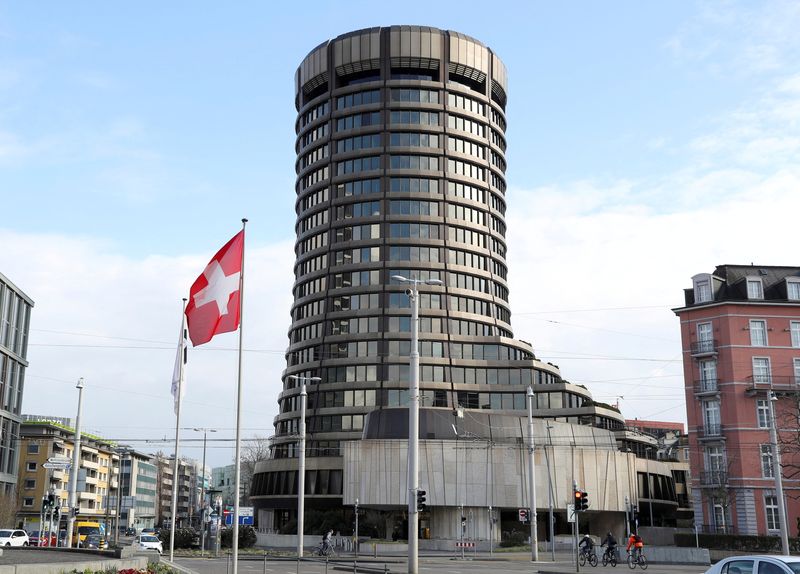By Huw Jones
LONDON (Reuters) - Global banking regulators on Thursday said supervisors need to up their game to better spot and tackle "outlier" banks with unsustainable business models to apply lessons from banking sector turmoil earlier this year.
The Basel Committee also said it would publish a consultation paper next month on requiring banks to disclose climate-related financial risks. In addition, it will consult on a set of disclosure requirements related to banks' exposures to cryptoassets.
The committee said the March 2023 banking turmoil, which saw the collapse of several U.S. lenders, including Silicon Valley Bank, was the most significant stress in the sector since the global financial crisis of 2008.
It was followed by the forced takeover of Credit Suisse (SIX:CSGN) (CS) by UBS.
In a stocktake on the events, the committee said it will prioritise work on making bank supervision more effective so that regulators spot "outlier" banks by better assessing their risk management, viability, and sustainability of business models.
Following the global financial crisis, the Basel Committee largely focused on raising how much capital banks should hold to avoid further taxpayer bailouts, but on Thursday it said supervisors needed to raise their game as well.
"As highlighted during the recent turmoil, a bank’s regulatory capital ratio at a given point in time does not always adequately capture its actual resilience in a forward-looking perspective," Basel's stocktake said.
"Supervisors should take prompt action to ensure that any deficiencies are addressed," it said, adding that a "rules based" approach to supervision alone was not enough.
"A key takeaway from recent events – most notably regarding the distress of CS – is therefore the importance of supervisors monitoring risk dynamics throughout the group," it added.
The committee said it will analyse if some of its liquidity rules need amending after much faster outflows of deposits during the March crisis, partly due to the impact of social media, compared with previous incidents.
Banks hold two liquidity buffers, a liquidity coverage ratio (LCR) to tide them over for a month, and a second one linked to longer term funding.
However, liquidity regulations alone may not be able to prevent all liquidity runs on banks in an age characterised by easy access to information as well as banking services via various digital tools, the committee said.

There may be merit in further assessing the complexity, transparency and understanding of AT1 debt instruments in a holistic manner, it added.
Hundreds of bondholders have sued Swiss regulator FINMA in an effort to recoup losses from the writedown of AT1 bonds in Credit Suisse.